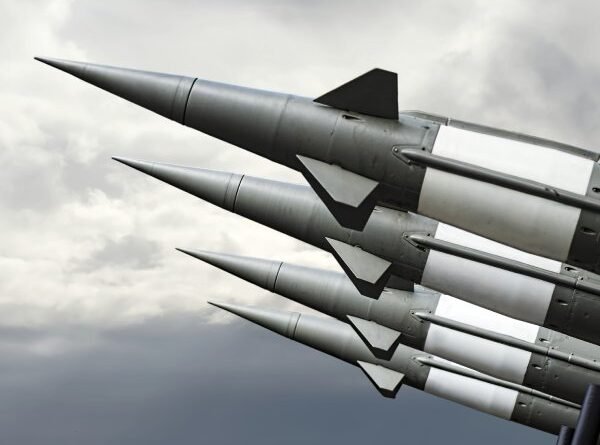New Bills Introduced to Toughen Sanctions Against Iran
Sen. Tom Cotton, R-Ark., and Rep. Elise Stefanik, R-N.Y., are introducing legislation that would strengthen sanctions on Iran’s development and transfer of long-range missiles and drones.
United Nations’ sanctions that restricted Iran’s missile development expired Oct. 18.
The International Atomic Energy Agency, a U.N. watchdog, said Wednesday that Iran has further increased its stockpile of uranium enriched to nearly weapons-grade levels.
Also, Iran’s terror proxies have upped their attacks on American forces in the Middle East since the outbreak of the Israel-Hamas war on Oct. 7. Fifty-nine U.S. troops have been injured in 56 attacks on American assets in Iraq and Syria since Oct. 17, the Pentagon confirmed Tuesday.
“The Biden administration seems content not to do anything to stop Iranian proxies from attacking American troops. But what will we do when Iran gets its hands on missiles that can reach America?” said Cotton, whose bill is titled the “No ICBMs or Drones for Iran Act.”
“This legislation will strengthen necessary sanctions on Iran to better protect America and our allies from their current drone attacks and future missile attacks.”
Stefanik introduced companion legislation in the House.
“Iran is advancing their pursuit of intercontinental ballistic missiles, arming Hamas and Russia to the teeth with kamikaze drones, and providing its terrorist proxies with weapons that are being used to strike American forces in the Middle East. This must stop,” Stefanik said in a statement.
“I am proud to join Senator Cotton in leading the No ICBMs or Drones for Iran Act to strengthen sanctions on Iran’s missile and drone programs. Iran’s backing of Hamas and their continuous strikes on U.S. forces make it clear that our current sanctions are not working. To start successfully deterring Iran, we must enhance and enforce sanctions on Tehran and begin investing in our homeland missile defense architecture through the construction of a third missile defense site at Fort Drum.”
The lawmakers’ legislation would:
- Establish the connection between Iran’s space launch vehicles and its pursuit of an ICBM, and declares U.S. policy to deny Iran an ICBM capability.
- Require the determination and implementation of sanctions for the IRGC-Aerospace Forces, and a notification to Congress after a missile or space launch vehicle test of the individuals involved.
- Require a report on Iran’s industries contributing to its ICBM program, its cooperation with other countries on its ICBM program, an assessment of steps Iran would need to take to acquire an ICBM, and an assessment of the ability of our homeland missile defense system to intercept an Iranian ICBM.
- Tighten the language in existing sanction law to clarify the inclusion of Iran’s drones.
- Require a strategy to counter Iranian drone production, transfer to other countries, and to prevent the inclusion of U.S. parts in Iranian drones.
- Expand the Iran Sanctions Act of 1996 to include Iran’s space launch vehicles and drones.
Charlie McCarthy | editorial.mccarthy@newsmax.com
Charlie McCarthy, a writer/editor at Newsmax, has nearly 40 years of experience covering news, sports, and politics.
© 2023 Newsmax. All rights reserved.




